Niko is a high school senior from Arizona and is interested in majoring in marine biology in college. Niko dreams of becoming a field researcher and working with samples from the deep sea. For their research project with MISS, Niko surveyed marine scientists of various backgrounds to learn more about discrimination in the field and its impact on scientists.
Other than their interests in marine biology and equality, Niko is an artist and anime fan. Here is our Q&A with Niko! What is your favorite part about being a MISS intern? Niko: My favorite part about being a MISS intern is being able to work with data. It may sound strange as people are generally put off by working with data sets and numbers, but seeing the different sets gathered by MISS is fascinating to me! So long as it's related to my interests, like marine biology, I enjoy working with numbers and hard data. What motivated you to apply for this internship? Niko: Applying to MISS was a complete shot in the dark. In fact, I didn't expect a response at all. My situation is a bit unconventional as a high school senior, but MISS aligned very closely with my senior project's topic, so I felt that there was no harm in trying. Imagine my surprise to not only get a response, but to also be accepted as an intern! How do you balance school work and internship duties? Niko: Luckily for me, I am considered unofficially graduated even though I am still enrolled. I do not have to go to any classes anymore and am able to fully dedicate my time to my internship. It's admittedly pretty strange that after being under the pressure of a busy schedule with tons of homework, I am finally able to focus on and dedicate all my time to something I'm extremely passionate about. What was your favorite class? Niko: My favorite class was always art class, but I've also enjoyed chemistry and biology! What advice would you give to future interns in your position? Niko: My biggest piece of advice would be to be wary of your time. As someone who’s far too familiar with time blindness and procrastination, doing things in a timely manner is something that is not only important to your project, but also to others around you. - If you are interested in becoming a MISS intern in the future or want to get involved with MISS, follow us at @miss_elasmo on Instagram and X for updates on upcoming opportunities!
0 Comments
By: Kayla Alamilla Blog #1: How an English Major is Helping Sharks
Hi MISS members and fans! My name is Kayla, and I am currently an intern at Minorities in Shark Sciences. I am a student at my local two-year institution with plans to transfer to an English program at a four-year university next year. As a MISS intern, I mainly help with content writing while working on my independent research on sharks, language, and local media. For as long as I can recall, my one true aspiration has been to become a writer. As a kid, I spent all my free time writing stories and poems and even won several regional creative writing competitions. However, when it was time to pick a college major, I swayed back and forth between wanting to be a writer and wanting to pursue a career in environmental science. The latter felt like an adequate choice of major, considering my love for the natural world, especially animals. In fact, in between writing stories in my childhood, I had another dream of becoming a marine mammal veterinarian! In my first year of college, I dove into courses like Biology and Field Biology, hoping to learn more about marine and wetland ecosystems, the environments I fell in love with while growing up in Southwest Florida. Although I gained tremendous experience and knowledge from those courses, I didn’t experience the same joy as I did in my literature class, dissecting William Blake’s “The Tyger” and exploring the symbolism of predation (nerdy, I know). However, my literature course made me realize I enjoy looking at the environment and animals from a humanities perspective. I am specifically interested in misunderstood predators (like sharks!) and their portrayal and significance in literature, folklore, and popular media. These creatures not only play a vital role in the health of an ecosystem, but they also hold cultural importance and, therefore, must be preserved and protected through community-centered conservation. By exploring my likes and dislikes, I found a path that authentically aligns with my passions and interests. As an English major at MISS, I am learning how language and science communication can impact shark conservation. I am also able to contribute to fun content (hello, Shark Madness!) to create engagement with supporters (like you!) while framing sharks in a positive light. In the future, I would like to continue writing content for science-based organizations like MISS while pursuing research around animal and literary studies and publishing a book of poems or essays one day! Ultimately, it is essential to let your intuition guide you. You can definitely be a person in STEM and a writer (for instance, MISS’ CEO Jasmin Graham is a shark scientist AND a published author!). However, from my personal experience, I probably wouldn’t have found my tailored niche without exploring different options and embracing my unique interests. Whether you are devoted to writing, visual arts, robotics, engineering, cinematography, public policy, fashion, or anything beyond biology, there is still a place for you in the marine sciences—you just gotta be creative! I included some articles discussing creativity, writing, and ocean conservation. Be sure to check them out for more inspiration! Marine Jobs Can Be Creative, Too! | Careers with STEM Uniting Creativity with Ocean Conservation | Conservation Career To STEM or to Communicate Science | Women in Ocean Science Best Fishes! Kayla 𓇼 By: Kayla Alamilla 2024 Spring Intern Sharks and Stanzas! Celebrating National Poetry Month at MISS with Creative Field Notes Creative Field Note Prompt #1
Write a poem from the point of view of a shark. The poems I found during my research included many poems from a person’s point of view witnessing and describing a shark encounter. Most of these poems included words such as “dark,” “blood,” “horrible” and “man-eater,” and focused on the emotions of a human subject. We can use poetry to think outside the box, including writing from the perspective of another subject. Write a poem from the perspective of a shark. How do they view the humans staring at them? Or, you can go on an entirely amusing route and write from the perspective of a particular species. What is it like to see the ocean world from the eyes of a hammerhead? What is it like to be small like a cookiecutter shark? Creative Field Note Prompt #2 Write a poem using sharks as a positive metaphor. Sharks are often portrayed using words like “aggressive” and “menacing”. In my research, I came across poems using sharks as “lurking” imagery to create a sense of uneasiness. In the words of the Academy of American Poets, “poems that incorporate sharks often leave them almost entirely out of sight, emphasizing the possibility of an encounter rather than presenting the animal itself.” As shark scientists, we have a unique on-hands experience with sharks. Though sharks can be mysterious in many ways (for example, a live newborn great white shark has never been seen up until this year!), their elusiveness does not have to equate to fear. Instead, it can be a chance to use sharks as a way to describe fascination. Write a poem to compare sharks to something else you find fascinating. Creative Field Note Prompt #3 Write a poem using sharks as a symbol for change. In a couple poems I read, the predator nature of sharks were used as symbols for oppression and injustice. There were poems who used the analogy of fishes in a sea of sharks to describe an imbalanced society, with the sharks representing a scary group who unfairly overrules the ocean. However, when I think about sharks, I think about the way sharks are misunderstood and vilified just for their existence and instinct of survival. I can’t help but empathize with them, especially when reflecting on the times I have felt discredited and unwelcomed in spaces as a gender minority of color. So, what if sharks were symbols of freedom, equality, change, or liberation? Write a poem about what it’s like to establish your presence in a space in spite of the sidelines saying otherwise. – I hope you all enjoy having fun with these prompts and interpreting it in your own unique way! If you plan on publishing it on your social media, please feel free to tag MISS @MISS_Elasmo! Buzzzzz! Merlin the drone launches into the sky. The controller screen in my hands displays a bird's eye view of sandy shores and seafoam green waves. A grey-purple smudge slowly swishes in the corner. “Hey- is this what I think it is!?” “Yeah! I think you just spotted a white shark!” This moment captures the thrill of my time with the Atlantic White Shark Conservancy(AWSC) as a MISS fellow. Who knew a conversation at the POSea conference would lead me to meet white sharks on Cape Cod? Assisting the research team was one of many roles I dived into this summer. Thanks to the generosity of MISS and AWSC, I was able to extend my fellowship from 6 to 13 weeks. Over the course of that time, I've honed my communication skills, met fin-tastic people, and weaved art and science into several masterpieces. A year ago I was a lab assistant with a bachelors in Marine Science studying intertidal anemones, snails, and limpets. Through MISS, I dived head first into sensational shark science and surfaced as a fired up artist and scientist. Stepping into the future, my goal is to use multi-modial art to increase accessibility to science for people and groups historically excluded from 'academia' with the intent of empowering them with connections and knowledge to protect what they love. I plan to apply for my masters degree in scientific illustration and someday do a PhD in conservation science. I can now envision myself soaring into a career of science communication- whether it be in shark science or beyond the elasmo-verse!... Read the rest below!
When I received my fellowship acceptance, I knew my life would be changed forever. I recognized that the experience and knowledge that I would gain during my time as a Eugenie Clark Fellow would be something that I likely would not have had otherwise due to financial barriers in this field. As a female first-generation student who identifies with historically excluded groups, I have faced several hardships throughout my academic and early-career scientific journey. This fellowship acceptance meant absolutely everything to me because I knew that I would be able to fully exist in a safe space for an extended period of time. This also meant that I would get the chance to learn and grow with the support of so many amazing and diverse groups of people I would meet along the way.
During the fellowship, I had the opportunity to participate in fieldwork, education, outreach, and even attend a conference, along with many other extraordinary experiences. In doing so, I was surrounded by supportive mentors and worked alongside the other fellows who were selected this past summer. I am very grateful that I met so many memorable people and created lasting relationships that I will forever cherish and value. These experiences created a sense of community which I had been seeking for so long in this field. It was a wonderful feeling to be surrounded by so many supportive people who uplifted each other. I hope to carry this on beyond the fellowship and create these spaces for others throughout my academic and career journey. I am currently a master’s student and have always had the desire to continue my education to earn a PhD to become a shark researcher, and eventually, a professor and mentor. After serving as a camp instructor at the MISS Summer Camp during the fellowship, I realized at that moment that my passion for teaching and mentoring was firmly established from that experience. This is something that I will always be grateful to MISS for, along with numerous other things. Despite the difficulties that some of us face in this field, MISS is a constant reminder that anything is possible if you put your mind to it, and I hope to inspire that in others as well. It was an absolute honor to be a Eugenie Clark Fellow and I would especially like to thank MISS, Havenworth Coastal Conservation, and Chicago Zoological Society’s Sarasota Dolphin Research Program for this opportunity. I will never forget all of the support, great memories, and experiences from my time as a Eugenie Clark Fellow. Upon reflecting on my experience with the Eugenie Clark Fellowship, I am filled with gratitude for the unique opportunity that came my way. Initially, I couldn't help but wonder how fortunate I was to be selected for such a prestigious position. Taking into account the expectations placed on me, I felt confident in my ability to handle the physical demands of the fellowship. However, I couldn't help but question whether I possessed the intellectual prowess and contributions necessary to make a meaningful impact in the world of shark sciences.
Being a minority, a woman, and a single parent, I was already well aware of the additional challenges that these characteristics might bring. It made me question if I would be able to fully embrace and succeed in this exceptional opportunity. Nevertheless, I embarked on this incredible journey of fieldwork, which not only involved studying sharks but also extended to dolphins, their prey, and stingrays. The experience was enriched by various modalities of fieldwork, including data analysis and science communication. The heart of the fellowship lay in the opportunity to work as a summer camp leader, a role that allowed me to express my own unique scientific voice. It was a chance to inspire and educate others about the wonders of the marine world. Throughout this journey, I was fortunate to be guided by mentors who not only generously shared their scientific expertise but also provided invaluable emotional support. In the end, the fellowship proved to be a transformative experience. I surpassed my own expectations and discovered untapped potential within myself. I learned that being a minority, a woman, and a single parent did not hinder my capabilities but instead enriched my perspective in the world of shark sciences. The fellowship provided me with the confidence and skills to contribute meaningfully to the field, and I now look forward to continuing my journey of exploration and discovery in the realm of marine biology. I am an empowered Science Communicator. I am a scientist. An adventurer, explorer, and a badass. In the quiet corridors of memory, I often find myself revisiting the vivid tapestry of my journey as a shark researcher. As I sit down to reflect on my journey through the Minorities in Shark Sciences (MISS) fellowship, I am struck by the profound shift in perspective that I have experienced. My name is Meghana, and I am a first-generation graduate from a conservative Indian middle-class family. My path as a shark researcher began in the bustling fish markets of India, where I predominantly worked with thousands of dead sharks and rays, collecting fisheries dependent data and gaining insights into the dynamics of overharvesting, livelihood dependency, and the role these threatened species played in our ecosystems. The MISS fellowship opened doors to a whole new realm of shark research with the internship opportunity at the Bimini Shark Lab, from participating in research activities in Florida Keys to sharing space with the curious beings in Bimini waters. This experience allowed me to witness firsthand the developments and advances in marine sciences and fishing practices in developed countries, contrasting them with the situations I had encountered back home. One of the most remarkable moments during the fellowship was my first encounter with live sharks while assisting with shark work-ups in Florida keys. The bonnet hammerhead being the first to see. It was an eye-opening experience to observe these creatures in their natural environment and engage in practices that contribute to shark sciences as part of fisheries independent research. Additionally, setting fishing gears like drum lines and longlines as part of this research methodology provided me with a deeper understanding of the gears and techniques employed to study these animals alive. ... Read the rest below!
My involvement in the fellowship encompassing social media management and the administration of non-profits has provided me with invaluable insights into the intersection of science communication and organizational dynamics. These experiences have enhanced my skill set and deepened my understanding of the vital role these aspects play in shaping the success of scientific initiatives.
Delving into the administrative aspects of non-profits taught me the behind-the-scenes intricacies that enable impactful initiatives to thrive. Collaborating with dedicated individuals passionate about our cause, I gained insights into grant applications, budget management, and strategic planning. The experience underscored the importance of clear communication, efficient coordination, and adaptability to the ever-changing landscape of non-profit work. I discovered that the passion that fuels scientific research must be complemented by organized and effective administration to ensure sustainability. Crafting engaging posts about our research endeavors, fieldwork, and the diverse backgrounds of our participants allowed me to convey the human side of scientific pursuit. I strived to break down complex concepts through carefully curated content, making them accessible to a lay audience. Reflecting on these experiences, I am struck by the symbiotic relationship between effective science communication and well-organized administration. While social media serves as a bridge, connecting researchers with a global audience, proficient non-profit management ensures that the infrastructure supporting these endeavors remains robust. The Eugenie Clark fellowship was a very special opportunity for me. Prior to this fellowship, despite having some field work experience, I had never felt I was part of the science community. I felt I had so many gaps in my knowledge and to be a part of shark science, I needed to be more prepared and experienced. It felt out of reach. Therefore, handling and working with sharks was always something that I wanted to be a part of, but couldn’t. I just didn’t know how I could get there. Having access to so many resources, advice and guidance from our mentors, and exposure to a variety of scientists and like-minded people that by the end, not only did I realize that to be part of science was easier than I had imagined but that I already was there.
What I loved about this fellowship was that it armed us with an insane amount of skills. I knew it would be very hands-on, but I couldn’t have imagined the various types of fieldwork and experiences we would be doing and the different types of species we would be handling and learning from. This left me feeling more confident in what I wanted to do and what I could do. I will always be grateful for the knowledge and skills I gained from being a part of this opportunity. With that said, what I feel I will hold closer to me, are the special connections and people I met and made friends with along the way. I know it sounds cliché and kind of corny, but I think at the end of the day it’s the people around us that impact us the most. Yes, it was super cool to handle a shark, take muscle biopsies, fins clips, to measuring little fish and spotted eagle rays, taking photo ID’s of bottlenose dolphins, but that isn’t going to be my initial memory of the fellowship years from now. What will stay embedded in me are the amazing conversations I had with the other fellows at Ben & Jerry’s, the laughs I had with the best roommate ever at the JMIH conference, or facing the fact that I might like kids more than I thought I did. This is what made being part of fellowship so special to me. Being a Eugenie Clark fellow solidified my love for sharks, my love of working with sharks, my love in shark science and ignited within me a new love for science communication. I finally feel that I am part of this world and have amazing friends and mentors I can count on. I can confidently say that this fellowship changed my life. I have always been intrigued and passionate about the ocean from a very young age. This love was sparked by joining my dad on fishing trips and watching natural geographic documentaries with him. I therefore dedicated my whole life to making my dream of becoming a marine biologist a reality. I chose science related subjects in high school and completed marine science courses at the Two Oceans Aquarium in Cape Town, South Africa and thereafter become a volunteer. I then moved onto studying towards a Bachelor of Science degree majoring in marine biology and oceanography at the University of Cape Town. I am now currently completing my honours degree in oceanography specializing in environmental influences on killer whales at Marion Island.
Although I have plenty of experience regarding theory work, I felt that I needed more field experience. I wanted to apply everything I learnt during university to a more practical setting. An internship opportunity appeared at the Oceans Research Institute in Mossel Bay and I thought this was exactly what I needed. I was able to expand my researching skills as well as learn new skills. Before my arrival on the 1st of August, I was filled with a mixture of emotions. This month would be the longest I’ve been away from home and my family. I was feeling nervous about leaving home and learning to live and work with new people. On arrival, all my fears dissipated. Everyone was extremely welcoming and kind. Our group of interns consisted of a mixture of people from different countries and expertise. We were led by amazing field specialists that we both knowledgeable and patient. I could learn from everyone present. My first day on the boat, I saw my first great white shark, it was unreal! Our job was to note the different morphological features of the sharks we saw and identify them based on these features. In the moment, I was in too much shock to notice any small details. They were so much larger when seen in real-life. I became much more efficient at doing this job overtime. I was also made aware of how crucial these magnificent animals were to the functioning of the ecosystems, not only in Mossel Bay, but along the whole Southern coast of South Africa. It was a great interest of mine to learn about great white shark population dynamics and the various research being done to answer questions about them. I was grateful to contribute even the slightest bit towards great white shark research, even if it was just through the process of data collection. Other than the thrilling experience of sighting white sharks, there has been various noteworthy projects that we worked on. These include tracking bottlenose & humpback dolphins across the bay, performing intertidal surveys, fishing, animal husbandry, marine plastic analyses, snorkelling, bioacoustics and tagging small catsharks. Fishing was the most exciting project as we were never aware of the fish species we would catch that day. Some species included Pajama sharks, leopard catsharks, puffadder shysharks, starry smoothhound sharks, soupfin sharks and even yellow-bellied rockcods. It was such a fulfilling experience to be working first-hand with these animals. We were able to not only gain practical skills, but also knowledge in the form of short theory courses. These ranged from marine mammal stranding, dissection, tagging, bioacoustics, science communication, white shark population dynamics, sea turtles to various shark research studies. I learnt so much and now have a much better idea of the kind of research work I would like to partake in in the future. I am even able to apply some of the knowledge gained from the bioacoustics and science communication courses in my honours research project that I am currently working on. One of the most important lessons I have learnt at Oceans Research Institute is that “teamwork makes the dreamwork”, taught to us by our head field specialist. Working as a team allows the daily shifts to flow easier and efficiently, allowing for the least amount of stress to be put on the animals we are studying. We also uplift and support one another, creating an amazing working environment. Lastly, when out in the field, we often get lost in the work of data collection. It is important to take a step back and appreciate the beauty of our work and be proud of becoming the person our younger selves always dreamed of becoming. |
Archives
May 2024
Categories |
||||||||||||||
About missMISS provides a community and funded opportunities for gender minorities of color who wish to enter the field of shark sciences. We aim to show that there are many gender minorities of color succeeding in and interested in this field.
We fundraise and apply for grants to create paid opportunities to attempt to knock down the financial barrier into shark sciences. We encourage other organizations in our field to do the same. |
Jump to:Our Story
Become a Member Friends of MISS Workshops Sponsorship Program Donate 2023 Annual Report 2023-2026 Strategic Plan Results Framework Final Report MISS is a registered US nonprofit, tax-exempt corporation under 501 (c)(3) of the Internal Revenue Code (EIN: 85-2192211).
|
CONTACT USMailing Address:
PO Box 10493 Bradenton, FL 34282 © COPYRIGHT 2022. Minorities in Shark Sciences Inc.
|
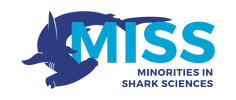

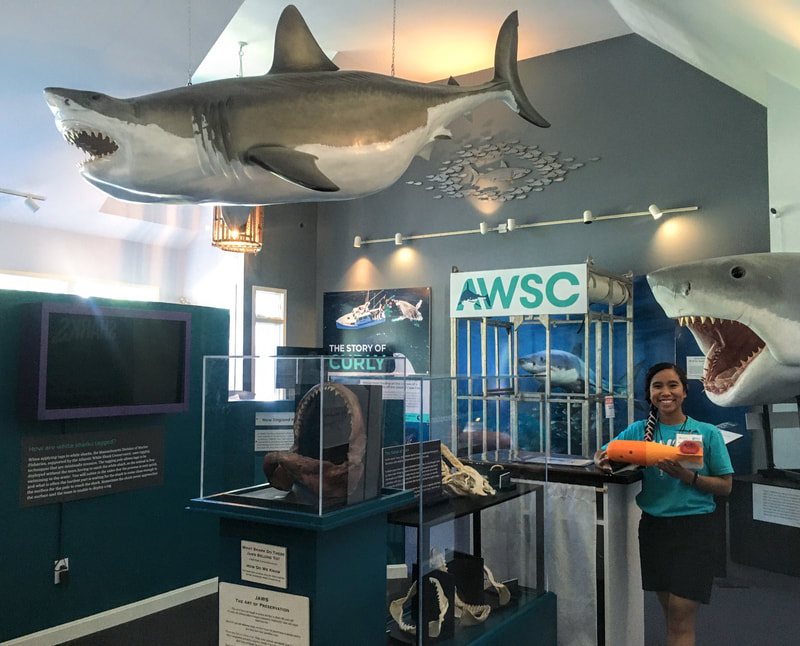
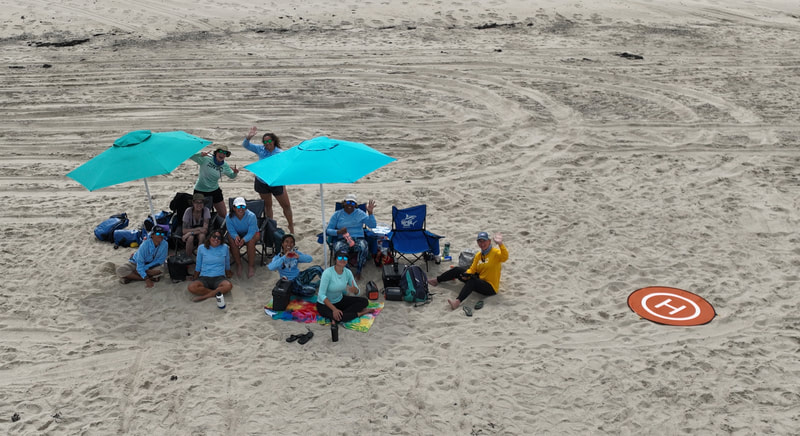
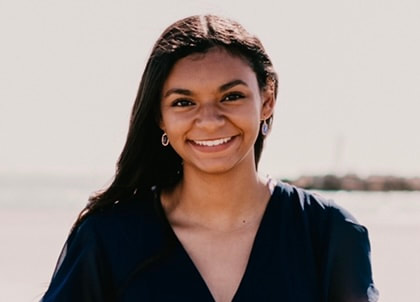
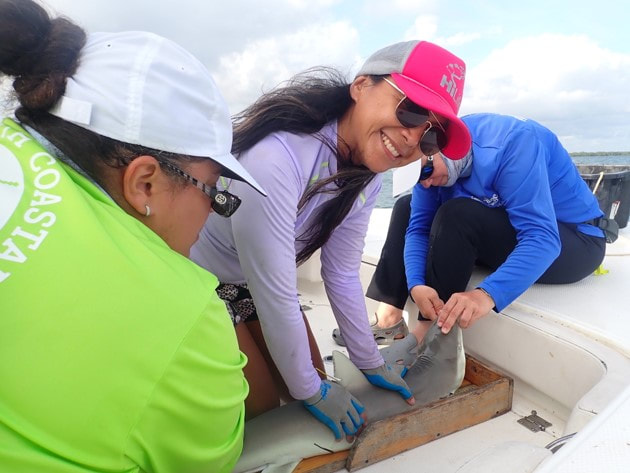
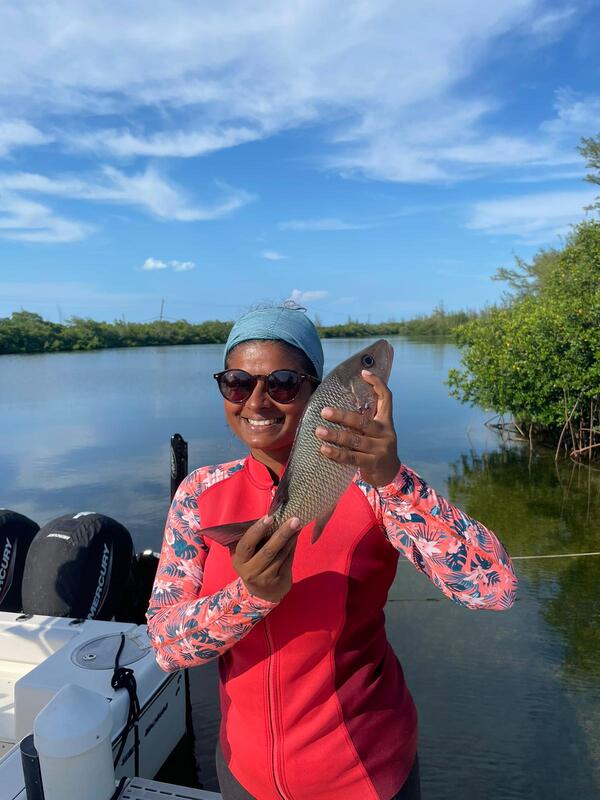
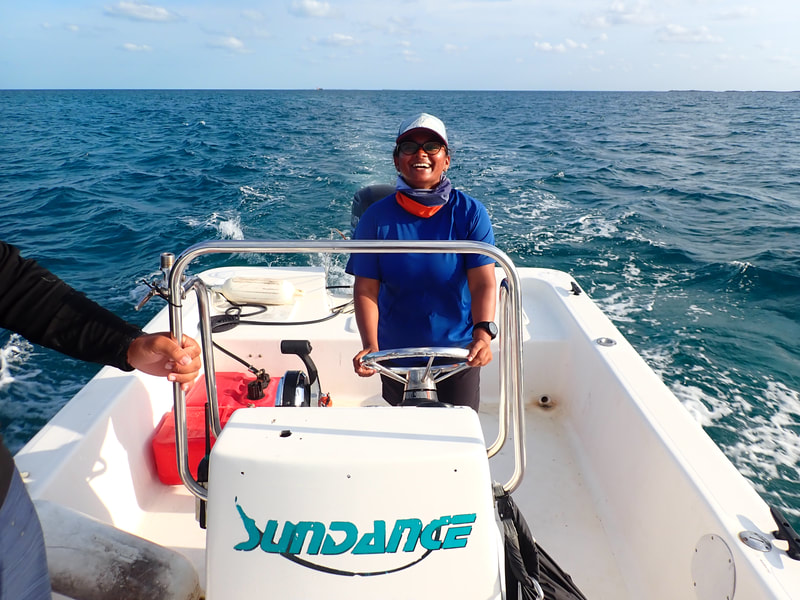
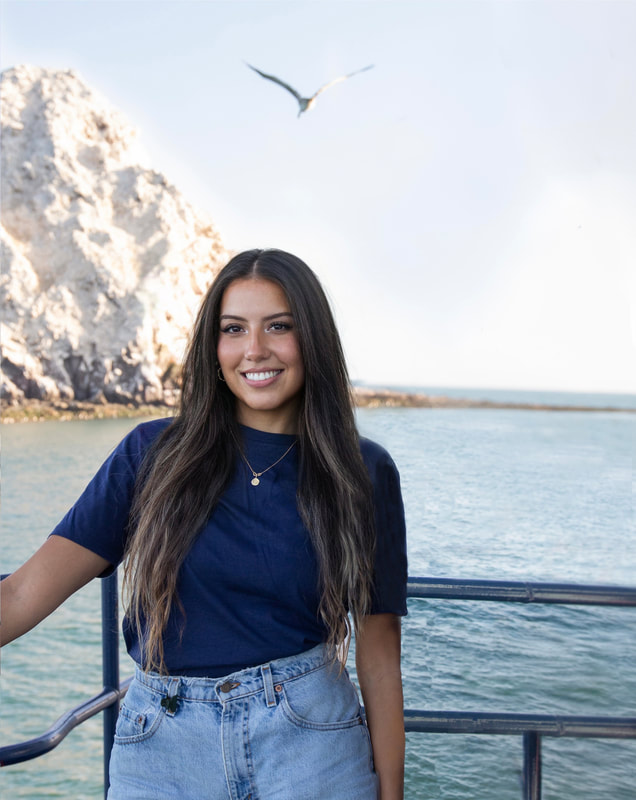
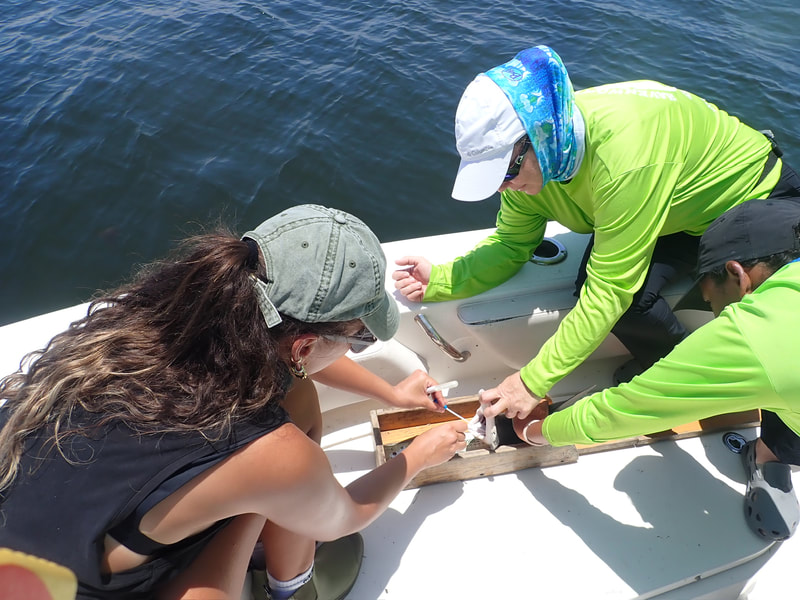
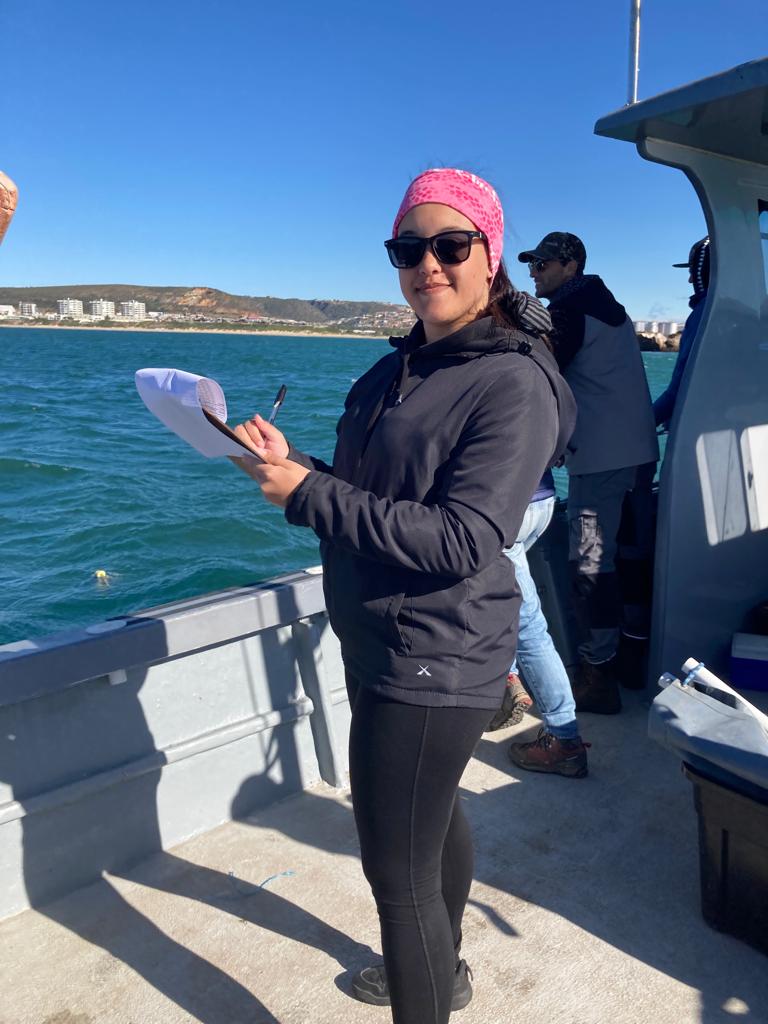
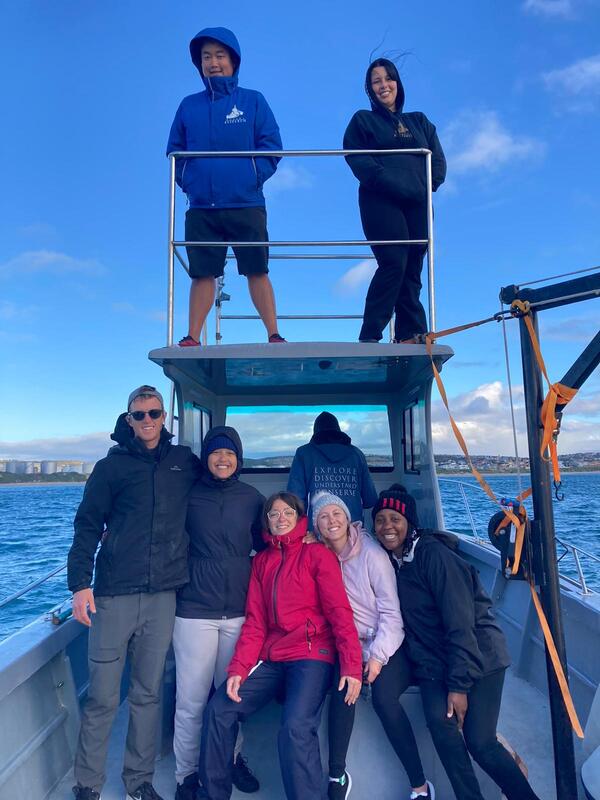
 RSS Feed
RSS Feed
